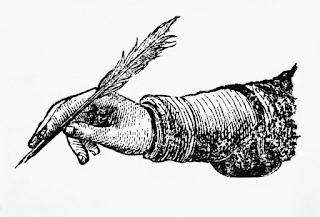In the 1970s, during the era of the British Ulster Dominion Party (BUDP) which emerged in the aftermath of the 1974 Ulster Workers’ Council strike, talk of Canadian-style Dominion Status for Northern Ireland was viewed as political ‘pie in the sky.’
The fringe BUDP was formed by academic Professor Kennedy Lindsay in 1975 under its original name, the Ulster Dominion Group, formally become the BUDP two years later.
Professor Lindsay was originally elected to the 1975 Northern Ireland Convention on a hardline Right-wing Vanguard Unionist ticket. He submitted his Dominion Status policy document to the Convention in September 1975.
He maintained that Northern Ireland should become a self-governing Dominion - like Canada - with the Queen as monarch and with a resident Governor-General. However, the idea floundered, much like both the Convention and the BUDP itself.
Unionism in 2021 faces the same ideological dilemma with the Protocol as it did with the Sunningdale Executive in 1974 - it knew what it wanted rid off, but had no workable alternative to replace it with.
Unionism did not want the power-sharing Executive with the SDLP in 1974, but ask the Unionist leadership after the strike collapsed that Executive in May 1974 and all it could do was trot out the ‘bring back majority rule Stormont’ rhetoric.
The Dublin government’s 1974 blueprint for running Northern Ireland was met with the no-warning Dublin and Monaghan bombs, which murdered around 30 people and left another 300 with various injuries.
Now in 2021, Unionism faces an even more serious dilemma. It is no longer in the electoral majority as an ideology; Northern Ireland voted ‘remain’ in the European Union, whilst the UK as a whole voted ‘leave’. Brexit has been implemented; there is a Protocol with an Irish Sea Border, and if the current unrest within Unionism is not addressed, Sinn Fein will pip the DUP to become the largest party in the Northern Ireland Assembly in next May’s expected Stormont General Election.
With one part of the island of Ireland in the EU and another part of the EU - which voted to remain in the EU - not in the EU, no matter how bitter the political medicine, Unionism needs to consider the concept of an all-island identity.
That does not mean Unionism has to begin considering Irish Unity. There is a massive difference between Irish Unity as envisaged by nationalists and republicans, and an all-island identity and partnership as envisaged by my own brand of pro-active Unionism, known as Revolutionary Unionism.
Revolutionary Unionism is about selling the concept of a Shared Union to the entire island - not just the six Irish counties which comprise Northern Ireland. It is about selling and sharing the economic and political benefits of the Union, not just to citizens across the six counties, but to citizens across the other 26 counties.
Unless either Westminster or Stormont can legislate for Australian-style mandatory voting, Unionist elected representatives will no longer boast of majorities in excess of 30,000 votes. In many Unionist district electoral areas, turnout is just above 50 per cent.
If Northern Ireland had compulsory voting, with turnouts in excess of 98 per cent, one wonders how the electoral map would turn in terms of Orange, Green and Yellow (Alliance) politics. But that’s a debate for another day.
Has the time come to sell the Union as Dominion Status for the whole island of Ireland? Would the Northern and Southern Irish economies flourish or collapse under the weight of Brexit and Covid 19 if Dominion Status was applied to all 32 counties of this island?
It’ll never happen, the skeptics will moan. The IRA’s Army Council and hardline loyalist Brexiteers will never accept it, they will also moan.
Yes, Dominion Status may have to be a tough call for many elected representatives as they may well have to ‘put people first’ before ‘putting party first’.
As a Unionist, what do I get? I get all 32 counties back in a new Union under Dominion Status, with Ireland (north and south) taking its rightful place once again in the Commonwealth Parliamentary Association. It should not be forgotten that Ireland was a founder member of the original Empire Parliamentary Association in 1911 when the island was entirely under British rule.
What do nationalists get from Dominion Status? They get an independent nation like Canada, New Zealand, or Australia with a closer working relationship to the UK than they presently enjoy.
Put bluntly, citizens of Ireland under Dominion Status will not have to pay 50 euros when they want an appointment at the dentist or doctor.
Unionists poured cold water on Sunningdale’s power-sharing arrangement in 1974, but welcomed virtually the same arrangement under the 1998 Northern Ireland Assembly.
Dominion Status may have got the ‘thumbs down’ in 1975, but in 2021 or 2022 if there is still a Protocol and Covid 19, who knows what might re-emerge on the table.
 |
Follow Dr John Coulter on Twitter @JohnAHCoulter Listen to commentator Dr John Coulter’s programme, Call In Coulter, every Saturday morning around 10.15 am on Belfast’s Christian radio station, Sunshine 1049 FM. Listen online. |






€ 65 to see a doctor 😷 in Dublin. Add in prescription 💊 costs , € 💯 in total.
ReplyDeleteAnother hairbrained idea from Coulter. Seeing the Reds destroy the canaries has him rattled # 20